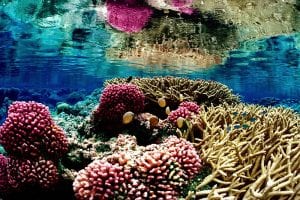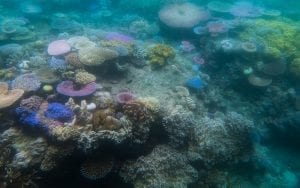You’ve heard time and time again about how coral reefs are dying, little by little- and that’s because it’s true. We can and should stop it; if we don’t, we risk everything we’ve ever known.
The warming of the oceans is caused by a number of things, almost all of them placing humans at fault. These elements include fossil fuel use, deforestation, and cement production. The creation of greenhouse gases warms the Earth itself, so far by almost 33º F since 1880. This includes the warming of the oceans. Melting glaciers (because of ocean warmth) increase sea levels and can even lead to more powerful and dangerous storms. The increase in CO2 in the water causes ocean acidification as well.
The warming of the oceans is caused by a number of things, almost all of them placing humans at fault. These elements include fossil fuel use, deforestation, and cement production. The creation of greenhouse gases warms the Earth itself, so far by almost 33º F since 1880. This includes the warming of the oceans. Melting glaciers (because of ocean warmth) increase sea levels and can even lead to more powerful and dangerous storms. The increase in CO2 in the water causes ocean acidification as well.
The ocean warming directly affects coral reefs through their symbiotic relationship with algae. The algae lives within the coral polyps, photosynthesizing and sharing energy with the coral. The easy access to sunlight coral provides is important to the algae. However, when the water gets too warm and too acidic, the algae gets expelled from the polyps. The coral then loses color as their skeletons, which cannot endure ecological changes, are exposed. This is coral bleaching.
The coral bleaching is a direct result of our rapid consumption of resources and production of greenhouse gases. A simple, small cutback on this consumption could solve so many of the earth’s growing problems. Turn off the lights. Use less water. Eat less red meat. Walk or bike instead of drive, just once a week. Small changes that affect the entire planet. The reefs are not only food for marine life, but they protect coastlines from flood/storm damage and provide employment for thousands. It doesn’t just affect wildlife. It directly affects a human’s quality of life. If you don’t do it for the environment, do it for the people.




Leave a Reply